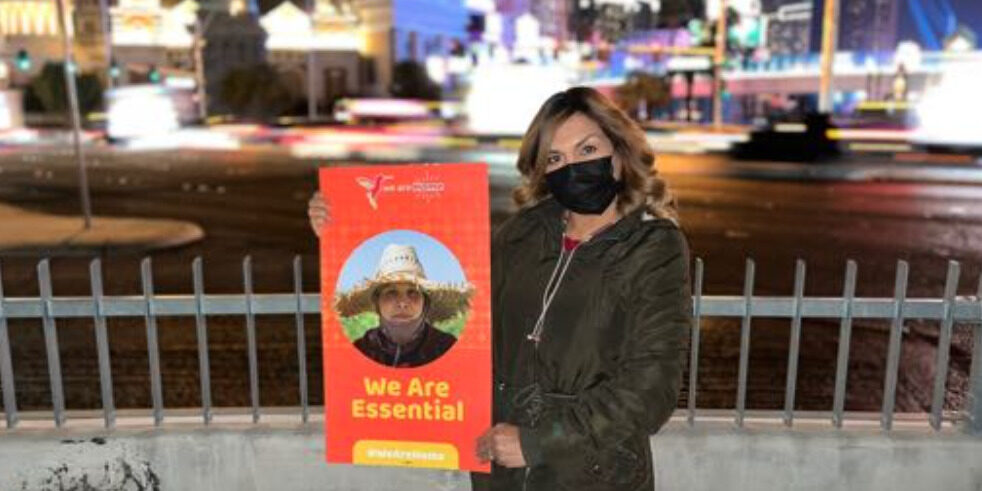
The COVID-19 pandemic devastated the Las Vegas hospitality ranks, but during this time the Culinary Union stepped in to deliver 430,000 packages of food and other mutual aid, offering comprehensive assistance even to laid off workers to navigate the pandemic. While most casinos with contracts had union-negotiated recall language to allow workers to return to their job when the economy and closures shifted, the Culinary Union still fought and won an expansive Right of Return law in mid-2021, which allows for workers in non-union hospitality jobs throughout the state to have first rights to return to their positions as the economy recovered.
The pandemic, in the words of one interviewee, “blew everything open. It moved front and center how many in Las Vegas are living paycheck to paycheck, and how those most affected are often the last to access the resources needed.”
Given that Vegas is one “the fastest warming cities and its air quality is toxic,” migrant workers across sectors have been put at risk of extreme heat injuries and illness. Day laborers, street vendors and construction workers have organized through Make The Road NV (MRNV) for further protections.